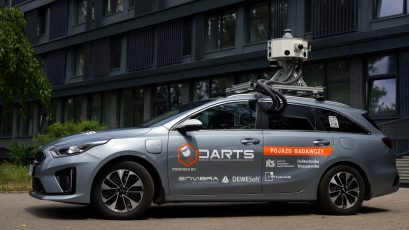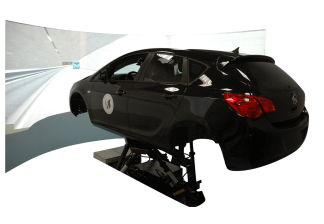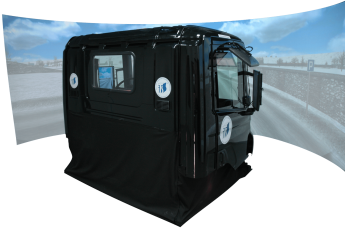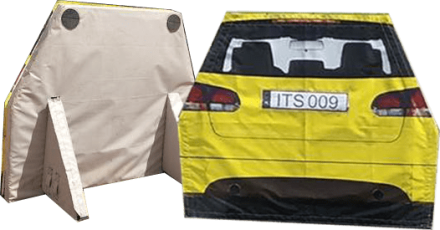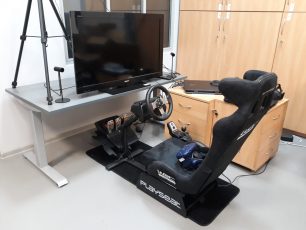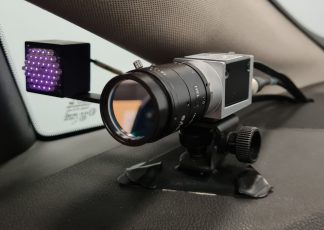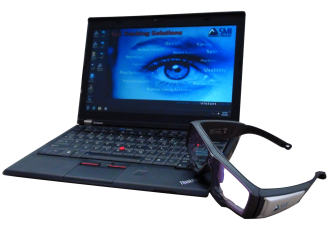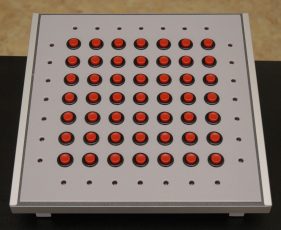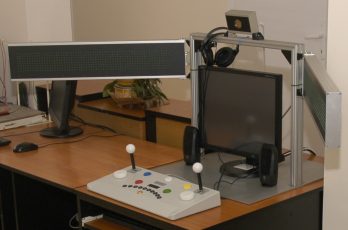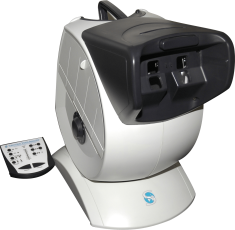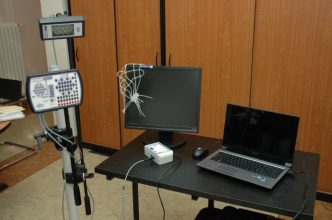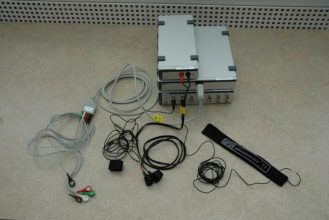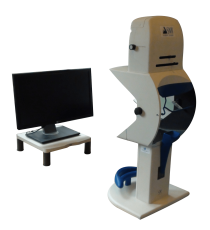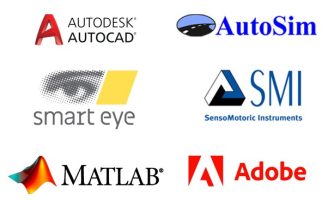Research opportunities
Our advanced technical centre enables the implementation of drivers, vehicles, equipment and infrastructure tests. Among them, the following should be highlighted:
- Study on behaviour and driver state monitoring with the use of driving simulators, eye trackers and KSS (Karolinska Sleepiness Scale),
- Assessment and validation of vehicle equipment, incl. Human-Machine Interface (HMI),
- Research on road transport automation systems and infrastructure, incl. for possibilities of introducing autonomous vehicles,
- Development and validation of modern methods of driver training,
- Research on road safety, also in context of the safety of vulnerable road users (VRU),
- Assessment of road users’ behaviour,
- Testing of elements of Intelligent Transport Systems (ITS),
- Analysis of the impact of ITS on the safety and efficiency of transport,
- Research in the field of transport psychology.
Scientific research equipment
The Competence Centre has an extensive research laboratories.
An advanced mobile measurement platform integrated with a passenger car was developed as part of the DARTS-PL project, funded by the National Centre for Research and Development. Its main purpose is the comprehensive acquisition and precise synchronization of data from a wide range of sensors whose parameters meet the requirements of manufacturers of automated and autonomous vehicles.
The AS1200-6 passenger car simulator is a high-fidelity device designed for examining impact of various types of dysfunctions (e.g. fatigue) on the ability to perform driving activity. The simulator may be utilized to practice driving skills in difficult road conditions, and due to advanced measurement capabilities, it is suitable for conducting infrastructure research, creating driving models and reconstruction of road accidents, leading a significant impact on safety.
The Truck and Bus Simulator is a high-fidelity device designed for examining impact of various types of dysfunctions (e.g. fatigue) on the ability to perform driving activity by professional drivers. The simulator may be utilized to practice driving skills in difficult conditions, and due to advanced measurement capabilities, it is suitable for conducting road infrastructure research, creating driving models and reconstruction of road accidents, which has a significant impact on safety.
Professional set of models and dummies enabling testing Advanced Driver Assistance Systems (ADAS). It consists of a static and pneumatic model with a towing system. Each model of the vehicle shows the rear end of a passenger car and complies with the AEB Protocol standard. The models are equipped with special elements and coatings that enable them to be recognized by the systems used in current vehicles. The Centre also has dummies representing pedestrian and cyclist that can be used to test driver assistance systems.
Virtual Reality is a term that describes a three-dimensional environment generated by a computer. Thanks to its use, a user can interact and manipulate selected objects in an artificially created virtual world.
Smart Eye Pro is a head and eye tracking system designed for use in the vehicle’s cabin. Thanks to its versatility, it can be used in measurements conducted for the majority research projects. The system provides information on head position and viewing direction in three-dimensional (3D) space. The advantage of the device is personalization – tracking is done using the personal profile of the examined person.
SMI Eye Tracking Glasses is a device designed to analyze visual perception in a real and virtual environment (for example driving simulators). The device uses a non-contact optical method, which consists in examining the position of the infrared light reflection from the eye’s cornea in relation to the center of the pupil. The Glasses system is built on the basis of glasses.
The test stand consists of devices used in psychological tests of drivers. Thanks to the tools, it is possible to evaluate, among others psychomotor performance, including reaction time, eye-hand coordination, as well as vision assessment, especially in low light conditions.
The Vienna Test System (VTS) is currently the only comprehensive psychological diagnostic support system dedicated to driver psychological testing
The FVA device is a complex tester that allows you to test some human vision functions. That are mainly used by drivers for realize contrast vision tests.
It is a computer assisted system of psychological tests that enables the diagnosis of psychomotor performance, intellectual performance, cognitive processes and personality.
An electroencephalograph is a device that allows you to study the bioelectrical activity of the brain. It is helpful in the diagnosis of many diseases of the nervous system.
The set for psychophysiological examinations performs the functions of an electrocardiograph (EKG), a GSR equipment (galvanic skin reaction tests), a respiratory equipment and an electromyograph (EMG).
SMI iViewX™Hi-Speed500/1250 is a system that uses the non-contact optical method for eye tracking.
Specialists from the laboratory of transport psychology and driving simulators, in addition to advanced research equipment, also use IT tools to support their work in researches.



